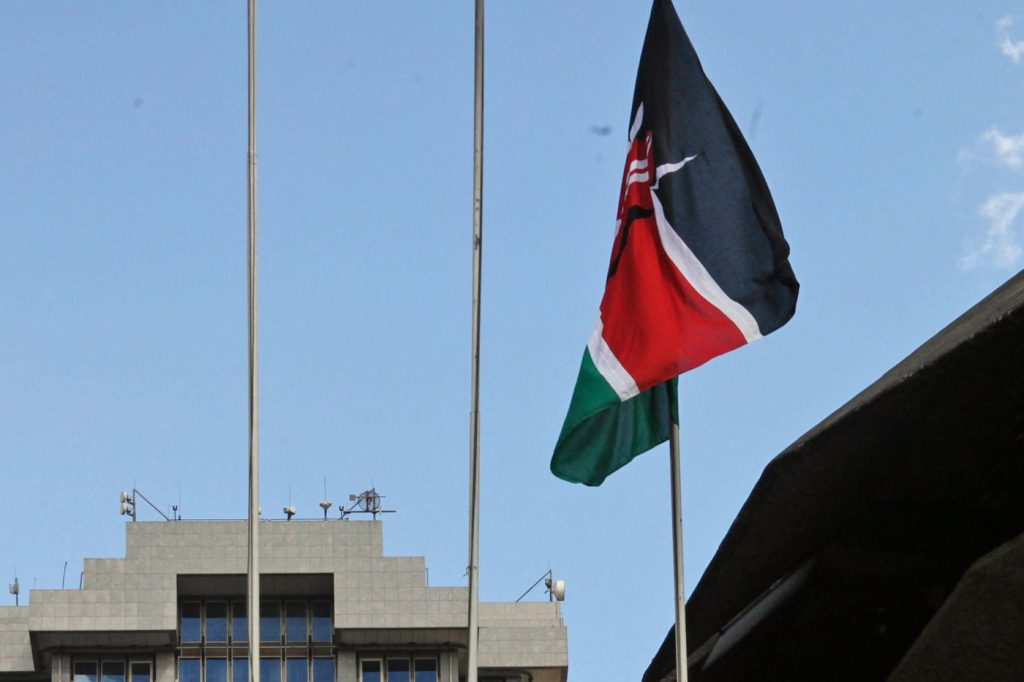Nairobi, Kenya (AP) – For the first time, Britain's government has agreed to pay a substantial sum in compensation to Kenyans following a civil lawsuit that arose after the lifting of legal immunity for British military forces in Kenya. This landmark decision comes as a result of a ruling that enables local courts to try civil claims against foreign military personnel.
The payout, amounting to 2.9 million British pounds (approximately $3.9 million), is intended to settle damages related to a wildfire that was accidentally ignited by British soldiers in Kenya in 2021. This fire devastated more than 12,000 acres of the Lolldaiga Hills in central Kenya, leading to significant ecological destruction and health concerns for the local population.
In total, over 7,700 Kenyans, alongside an environmental lobby group, filed a class-action lawsuit at the Kenyan Environment and Land Court. The British government acknowledged that the fire originated from a soldier's kerosene stove, burning for nearly two weeks and resulting in one casualty and numerous animal deaths. Locals reported health issues stemming from toxic fumes, including respiratory problems and impaired vision.
According to an ecological assessment presented in court, restoring the damage inflicted by the wildfire could take between 30 and 50 years. Initially, the British government claimed legal immunity in Kenyan courts; however, this claim was dismissed by High Court Judge Kossy Bor, who ruled that the U.K. lost its absolute immunity when it entered a defense treaty with Kenya.
This case marks the first instance that Kenyan courts could address civil claims against British military forces, reshaping the landscape of accountability for foreign military operations within Kenyan borders. Kelvin Kubai, a legal representative for the Lolldaiga community, expressed optimism about the settlement, viewing it as a precedent for future claims and an important step towards military accountability.
Despite the historic nature of the settlement, many Kenyans expressed dissatisfaction with the compensation amounts distributed among affected residents, which some estimated to be as low as 129 pounds. The community had originally sought 575 million pounds in compensation, considerably higher than the settlement offered. Local resident Charles Ndungu voiced frustration, highlighting personal losses from the smoke and damage caused by the fire.
In light of the circumstances, some community leaders, including John Kiunjuri, plan to gather soon to discuss potential protests aimed at demanding justice and increased transparency from the British government regarding the settlement.
In addition to these legal challenges, the British Army is currently facing scrutiny regarding allegations of misconduct by its personnel stationed in Kenya. Recent reports reveal that soldiers continue to breach regulations prohibiting transactional sex, particularly in the Nanyuki area, despite the existing ban. An investigative documentary aired by Britain’s ITV has prompted a government inquiry into these activities, indicating a persistence of such behavior among military personnel.
Moreover, a subsequent U.K. High Court ruling has required the release of contact details for 11 British soldiers accused of fathering children with Kenyan women during their deployments. This ruling poses potential implications for paternity claims, citizenship rights, and reparations as local communities seek accountability for the actions of foreign military personnel.
As the century-old military partnership between Kenya and Britain undergoes increased scrutiny, demands for a review of the Defense Cooperation Agreement, established in 2015, have intensified. This agreement allows approximately 3,000 British troops to conduct training exercises in Kenya each year and grants Kenya jurisdiction over civil and criminal cases involving British soldiers on its territory.
Given the evolving landscape of accountability and the growing calls for reform concerning the conduct of foreign militaries in Kenya, the interplay between diplomatic relations and the pressing needs of affected communities will continue to shape discourse in this context.











